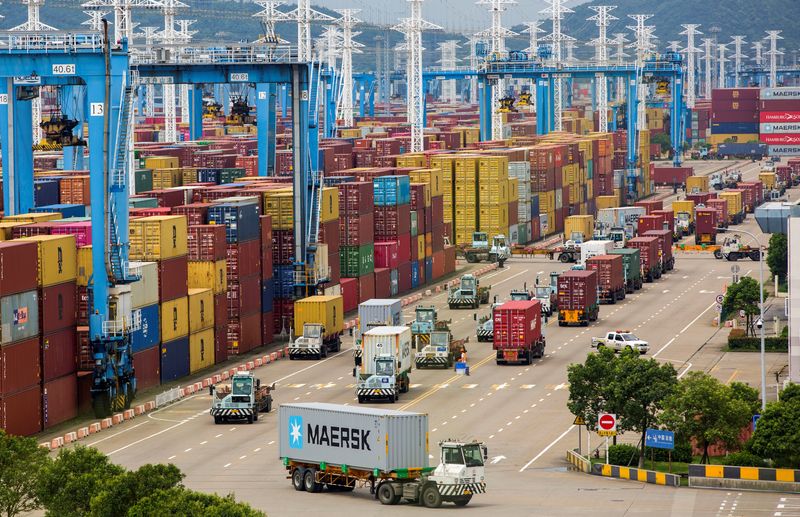By Jamie McGeever
(Reuters) - A look at the day ahead in Asian markets.
The volatility that scarred global markets last week is giving way to a greater degree of calm early this week, and traders go into Tuesday's session in Asia looking to claw back some recent losses before assessing their next move.
Although risk appetite rebounded and volatility sank back notably on Monday, there was little change in U.S. interest rate futures' pricing of the Fed's expected easing path - still nearly 250 basis points of rate cuts by the end of next year, reflecting significant concerns over the growth outlook.
But with U.S. inflation figures due out on Wednesday, investors may be reluctant to push too hard in either direction over the next 36 hours. Asian markets on Tuesday could take their cue from local drivers.
Economic data releases include Malaysian industrial output, Indonesian retail sales, and Australia consumer sentiment and business confidence, while the yen's upward momentum has stalled and a move back below 143.00 per dollar now looms.
The most important trigger for markets in Asian hours on Tuesday could be Chinese trade data for August, and the bar of expectation has been set low.
Exports likely rose 6.5% year-on-year by value, down from July's 7.0% growth and the slowest pace in four months, while imports are expected to have grown just 2%, compared with 7.2% in July, according to a Reuters poll of economists.
Weakening export activity amid fears of mounting trade barriers and tariffs would be alarming in itself, but tepid import growth also reflects weak domestic demand. Together, they speak to an economy struggling to generate solid, sustainable growth.
Then there's the cloud of deflation that refuses to lift.
Figures on Monday showed that consumer inflation ticked up in August to the fastest pace in six months, but the rise was due more to higher food costs from weather disruptions than a recovery in domestic demand. The 0.6% annual rate was still lower than forecasts.
More worrying, producer price deflation intensified. The producer price index in August slid 1.8% from a year earlier, the largest fall in four months, worse than July's 0.8% decline and below economists' consensus forecast of a 1.4% fall.
Factory gate prices have been in outright deflation for two years, a key reason why consumer price inflation is unlikely to accelerate much any time soon.
Meanwhile, Taiwan's TSMC, the world's largest contract chipmaker, will announce its monthly sales figures for August. Sales in June totaled T$207.87 billion, and rose to T$256.95 billion in July.

Taiwan firms like TSMC are major supplier to Apple (NASDAQ:AAPL), Nvidia (NASDAQ:NVDA) and other tech giants. Their growth helped drive Taiwan's August exports to an all-time monthly high of nearly $44 billion, as growing demand for chips to supply the AI industry offset anemic demand from China.
Here are key developments that could provide more direction to Asian markets on Tuesday: - China trade (August) - TSMC sales figures (August) - Australia consumer confidence (September)